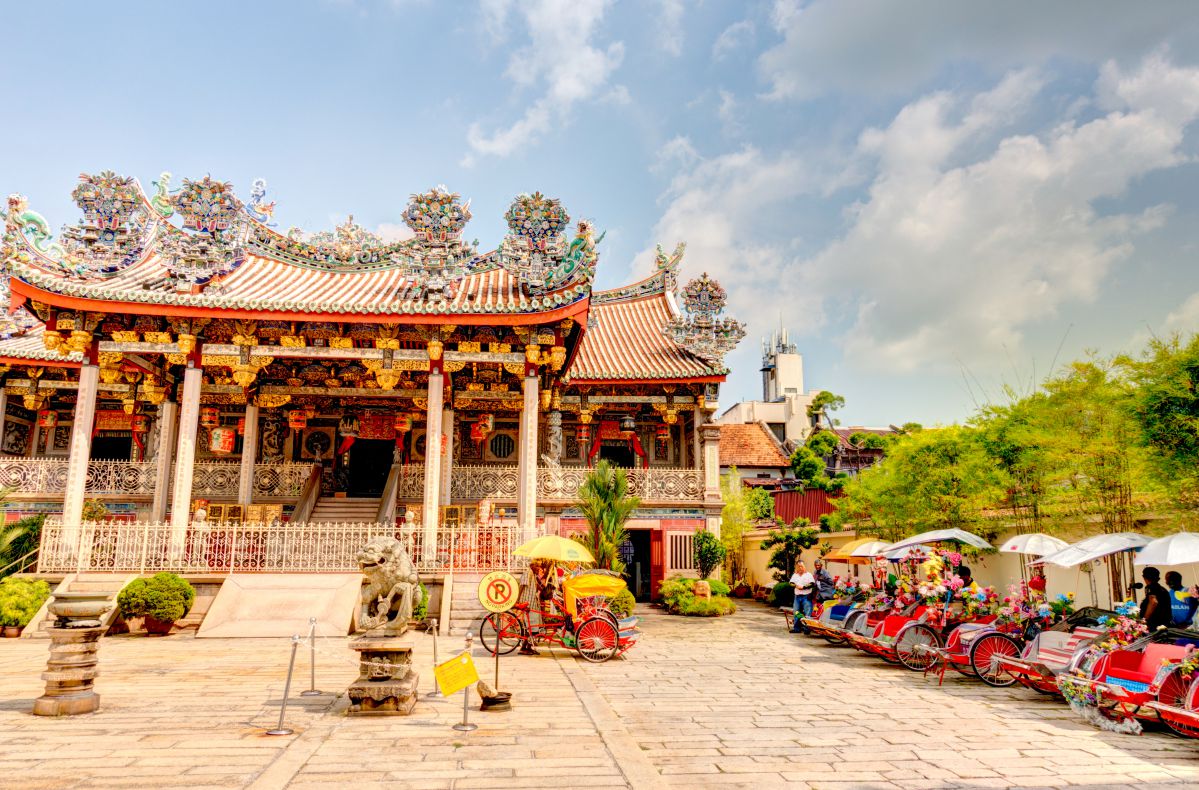Malaysia’s emerging as the next big hotspot for digital nomads. Teaming up with Airbnb, the Malaysia Digital Economy Corporation has rolled out the DE Rantau initiative, aimed at promoting remote work in over 600 locations.
With a rich cultural heritage, high-speed Wi-Fi, and a visa allowing a year’s stay, it’s no wonder digital nomads are flocking to this Southeast Asian gem.
This initiative is set to not only boost the economy but also foster local community relationships.
Exploring Malaysia’s New Digital Nomad Visa
They’ve recently introduced a digital nomad visa in Malaysia, making it an appealing destination for remote workers from around the world. This initiative, launched by the Malaysia Digital Economy Corporation (MDEC) and Airbnb, aims to foster a thriving digital nomad community.
With a surprisingly low cost of living and a decent quality of life, Malaysia’s offering is hard to resist. The DE Rantau Nomad Pass, at just $225, it’s arguably Asia’s most affordable digital nomad visa. It’s not just cheap, but also easy to secure, with a minimum monthly income requirement of just $2,000.
Add to this the country’s rich cultural heritage, friendly locals, and high-speed Wi-Fi, and it’s no wonder digital nomads are flocking to this Southeast Asian gem.
The Process of Applying for the Malaysian Digital Nomad Visa
Applying for the Malaysian Digital Nomad Visa, one should note that the DE Rantau Nomad Pass is the easiest and cheapest option in Asia. It’s a straightforward process that’s done digitally.
The application requires a fee of $225, which is 75% refundable if rejected. To qualify, applicants must earn at least $2,000 a month, work in a digital field, and have a valid passport. They’ll also need to show proof of income, tax registration, insurance, good conduct, and employment.
While rejections are rare, they can happen without explanation. The visa allows a stay of up to a year, with an option for yearly renewal. It’s a great opportunity for digital nomads looking to explore southeast Asia.
Why Malaysia Is Attracting Digital Nomads
Malaysia’s low cost of living, developed infrastructure, and rich cultural heritage are drawing in digital nomads from around the globe. They’re finding a welcoming, friendly atmosphere that makes settling in easy.
The DE Rantau initiative, a collaboration between Malaysia Digital Economy Corporation and Airbnb, is actively promoting digital nomadism, creating a supportive community for these global workers. Over 600 Airbnb listings, ideal for remote work, are being promoted across the country.
These spaces are not just about work, they’re located in Malaysia’s most popular hotspots, offering stunning natural wonders and a unique cultural experience.
This initiative is not just beneficial for digital nomads, it’s also boosting Malaysia’s long-term rental market, proving to be a win-win situation for everyone involved.
Accommodation Options for Digital Nomads in Malaysia
Airbnb has stepped up to the plate, curating over 600 listings across Malaysia that are ideally suited for remote workers. They’ve strategically located these lodgings in popular hotspots, ensuring digital nomads enjoy a blend of work and leisure.
Each listing features dedicated workspaces and high-speed Wi-Fi, essential amenities for those earning their keep online. Airbnb isn’t stopping there. They’re organizing seminars for local hosts to enhance their premises and service, catering to the unique needs of this new breed of tenants.
It’s clear that digital nomads are driving a surge in long-term rental reservations. MDEC’s partnership with Airbnb is not just a win for the nomads, but a significant boost for Malaysia’s economy. This collaboration is truly reshaping the country’s rental landscape.
Understanding the Visa Application Process and Duration
Understanding the visa application process is crucial for digital nomads planning to work remotely from Malaysia. They’ve made it simpler by carrying out the application process digitally.
The DE Rantau Nomad Pass is the most accessible and affordable digital nomad visa in Asia, with a fee of $225. The process takes about eight weeks, with rare instances of rejection.
Applicants need to meet certain criteria like a minimum monthly income of $2,000 and work in the digital domain. They’ll also need to provide proof of income, tax registration, insurance, good conduct, and employment.
In case of rejection, 75% of the fee is refundable. Additionally, a personal bond is required, which is refunded when the visa expires. It’s a process designed to make Malaysia an attractive hub for remote workers.
Cultural and Recreational Opportunities for Digital Nomads in Malaysia
Having navigated the visa process, the digital nomad is now ready to immerse themselves in Malaysia’s rich cultural tapestry. It’s not just about work; Malaysia offers an array of recreational opportunities.
The cultural diversity is captivating, with a blend of Malay, Chinese, and Indian influences. Festivals abound throughout the year, offering a glimpse into the country’s multi-faceted heritage.
From tasting local delicacies at a bustling street market to experiencing the tranquil beauty of tea plantations in Cameron Highlands, there’s a lot to explore.
They can soak in the vibrant city life in Kuala Lumpur or retreat to the pristine beaches of Langkawi. And let’s not forget the lush rainforests of Borneo!
In Malaysia, digital nomads aren’t just working remotely, they’re living a unique cultural experience.
The Impact of Digital Nomadism on Malaysia’s Economy
They’re seeing a significant economic boost in Malaysia due to the influx of digital nomads. This transition has been catalyzed by initiatives such as the DE Rantau, a collaboration between MDEC and Airbnb.
They’ve identified over 600 listings ideal for remote workers. This has spurred a surge in long-term rental reservations, bolstering Malaysia’s housing market.
Furthermore, the DE Rantau program focuses on fostering a mutually beneficial relationship between locals and digital nomads. They’re not just attracting foreign income, but also promoting cultural exchange and community integration.
The digital nomad visa also plays a key role by making Malaysia an accessible and attractive destination for remote workers.
Overall, digital nomadism is contributing significantly to Malaysia’s economy, marking a promising start to an increasingly digital future.

